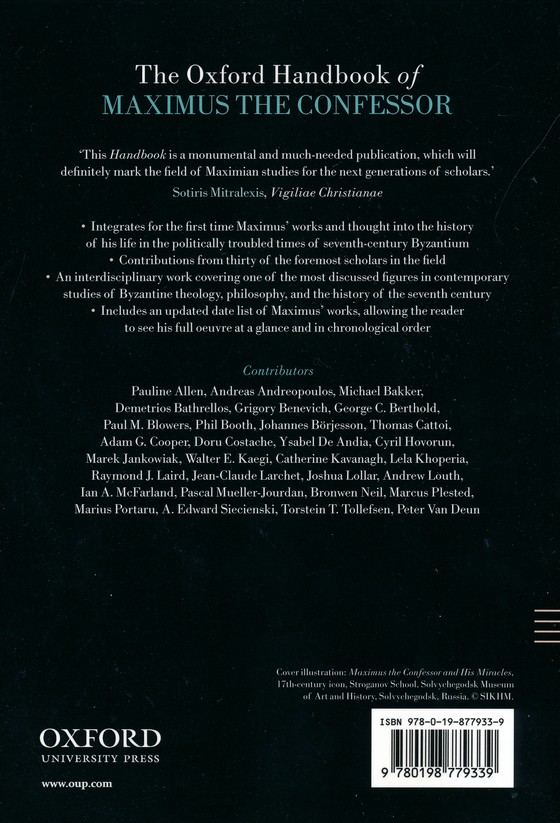The Oxford Handbook of Maximus the Confessor
Free download. Book file PDF easily for everyone and every device. You can download and read online The Oxford Handbook of Maximus the Confessor file PDF Book only if you are registered here. And also you can download or read online all Book PDF file that related with The Oxford Handbook of Maximus the Confessor book. Happy reading The Oxford Handbook of Maximus the Confessor Bookeveryone. Download file Free Book PDF The Oxford Handbook of Maximus the Confessor at Complete PDF Library. This Book have some digital formats such us :paperbook, ebook, kindle, epub, fb2 and another formats. Here is The CompletePDF Book Library. It's free to register here to get Book file PDF The Oxford Handbook of Maximus the Confessor Pocket Guide.
Contents:
See details.
Tag: Christianity
Buy It Now. Add to cart. Be the first to write a review About this product.
New other : lowest price. About this product Product Identifiers Publisher.
Additional Product Features Author s. Show More Show Less. No ratings or reviews yet.

Be the first to write a review. Best Selling in Nonfiction.
Edited by Pauline Allen and Bronwen Neil. Pauline Allen is professor and director of the Centre for Early Christian Studies at Australian Catholic University, Brisbane, and honorary researcher at University of Pretoria and Sydney College of Divinity. Subject(s) in Oxford Handbooks. Maximus the Confessor (c) has become one of the most discussed figures in contemporary patristic studies. This is partly due to the relatively recent .
Articles Cited by. The Journal of Theological Studies 51 2 , , The Oxford Handbook of Maximus the Confessor, , Journal of Early Christian Studies 18 2 , , Articles 1—20 Show more.
KIT-Bibliothek: Karlsruher Virtueller Katalog KVK : Ergebnisanzeige
Help Privacy Terms. Seventh-century popes and martyrs: the political hagiography of Anastasius Bibliothecarius B Neil Brepols , Leo the Great B Neil Routledge , Pauls , St John Chrysostom. Andreas Andreopoulos.
Eschatology in Maximus the Confessor. N2 - Maximus struggled with the question of apocatastasis as it was known since the time of Origen, but did not address the concept of the time of God, or time beyond time, or the eighth day, only in a linear way. Instead, he reframed the question and examined it in a different context.
Rather than place the dwelling of the soul in God at the end of linear time, he placed the end of time at the union of the soul and God.